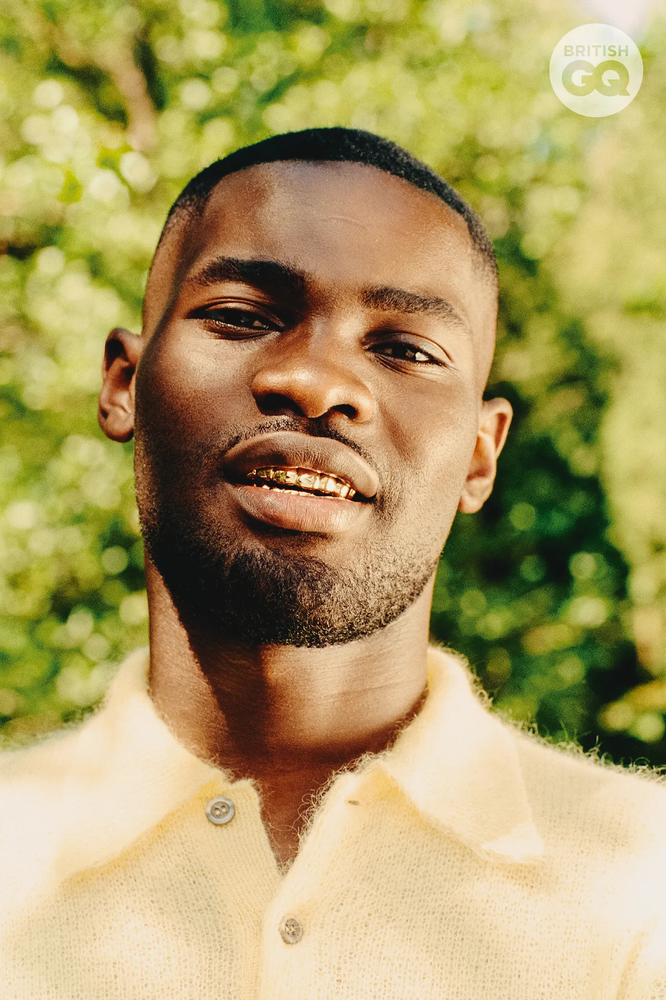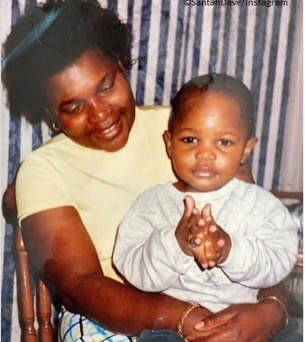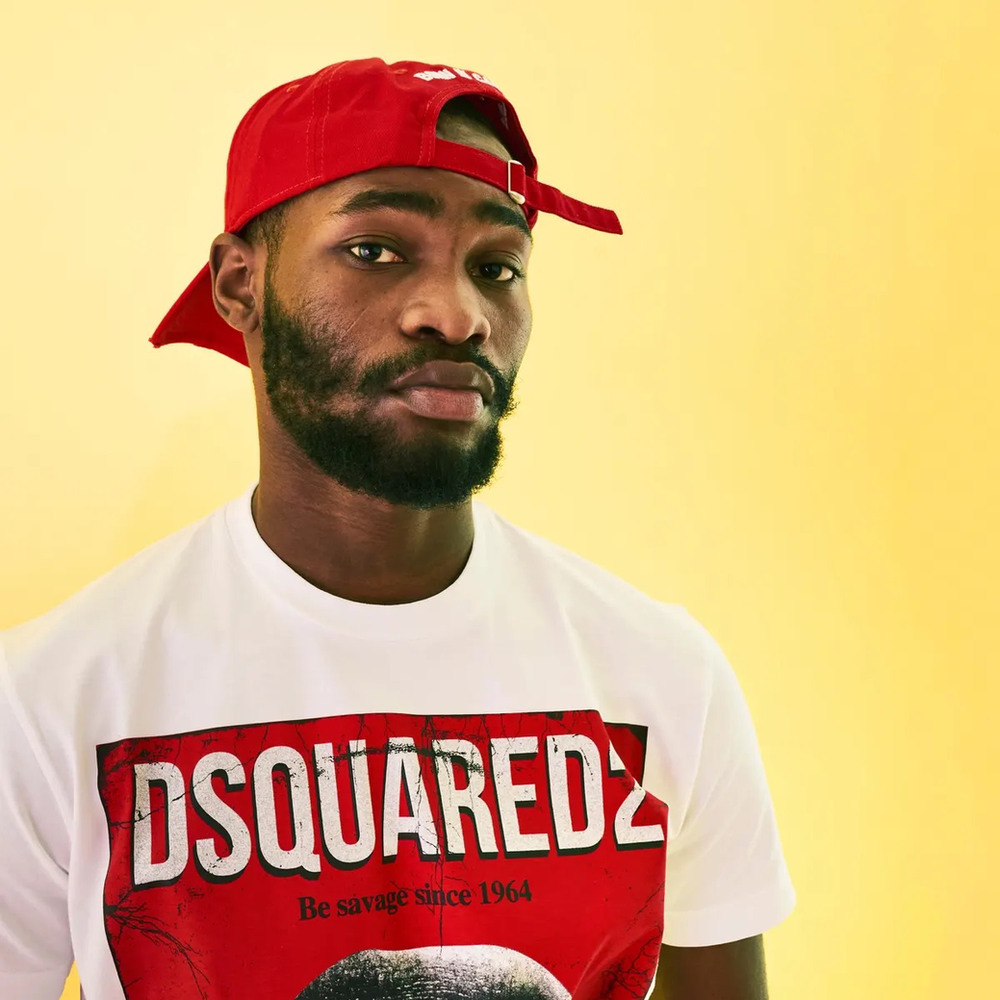Santan Dave, operating on an intelligent examination of social and political experiences as black man and the child of an immigrant, provokes a conversation about the need for a social and cultural reshape. With an ever growing introspection, Dave weaves his truth into an illustration of institutional racism, immigration, feminism and political corruption in his own community. He stands off as a figure responsible for pepertrating these social biases. Despite co-signs from big dawgs like Drake and collaborations with powerhouses like Jhus and Burna Boy, Santan carves himself apart from his peers, setting a standard as to what a rapper should really mean to his community.
Since his ‘Funky Friday‘ release, Dave has prompted a rebirth of the traditional rap that critiques the social and political discourses, all these whilst also reshaping this using a more constructive and less violent approach. In an interview with NME, Santan Dave unequivocally notes his role as an advocate for the dissemination of black experiences. He stated that he is “always ready to tell the hard truth for those who cannot.”

With every release, Dave proves to be the voice of a new generation, weaving the demands of his immediate society round his art. To many, he is a pigment, giving audience to experiences like misogyny, racism, cultural appropriation and the harsh conditions of immigrants in the United Kingdom. He poses himself as the leader of the pack, ever ready to take on his responsibility as an artiste to educate his community and commanding necessary changes. Orobosa being Britain’s Golden boy, he is able to successfully balance his responsibilities as a rap artiste to speak up for his immediate community, as well as educate his society about certain social ills that have ravaged the United Kingdom and while music is to be an escapist measure, Santan illustrates that perhaps, it could be more, an agent of social and political change. Recall his powerful Brit performance where he regarded the Prime Minister, Boris Johnson, “the real racist” and overtly called out the hypocrisy of the British media. In an added verse to his “Black”, he said “It is racist, whether or not it feels racist./ The truth is our Prime Minister is racist/ They say you should be grateful we’re the least racist,/ I say the least racist is still racist./ If you don’t wanna get it, then you’re never gonna get it,/ how the news treats Kate versus how they treat Meghan.” His vocal expressions on the subject of institutional racism that has well documented his social experience is also evident in his ‘Black‘, where he noted that “Black is pain, black is joy, black is evident/ it is working twice as hard as the people you know you’re better than…/ our heritage been severed, you never got to experiment/ with family trees, cause they teach you ‘bout famine and greed.”

There is a resoluteness that his music projects which places him in the upper echelon, as the leader of the new school rap in the UK. Owing it to his mother, he explores the muddles that immigrants experience and increased crime rate in the United Kingdom. In ‘Heart Attack‘, his mum is heard crying as she narrates her ordeal as an immigrant in Britain. She says, “I sat on my two hands/ I struggled ‘cos I didn’t want to suffer again/ I went to a Hannover, they sent me back/I tried so much, we have no say here.” Further narrating her experiences, she says, “I have three babies in my hands/ nobody let me in, nobody in this nation/ pay me back for all those pains that I go through/ everyday, I’m in pain, I’m in pain.” In an interview with Times, he said, “I was having a conversation with my mum in the house. And I was recording it, because I was looking for inspiration for this album. She was just crying. Sometimes, I wonder if it was right to include it. But that pain? My mum is a good person, a nurse. She don’t trouble nobody.” In ‘Three Rivers’, he further explores the UK’s lackadaisical treatment of immigrating Caribbeans who fought alongside the Britain in the two world wars, where approximately 16, 000 West Caribbeans volunteered, fought for and rebuilt Britain. “You know Ian, Delroy, Vivian, Winston/ who got drafted to England/ Windrush babies from Kingston to Brixton…/ The only place you live says you ain’t a Brit/ They’re deportin’ our people and it makes me sick/ cause they were broken by the country that they came to fix.”
One of these introspections is his stance on feminism and the dangers of misogyny to his society. He is quick to parody the issues of misogyny and women degradation and how these social constructs continue to punch down on women and on their ideas of self-realization. In ‘Lesley‘, he further responds to the responsibilities that the artistes owe their society, to propagate a poignant change. Evidently, without putting himself at the forefront of the activism, he explores the problem of women being entrapped in toxic masculinity – “It’s a message to the woman with a toxic man/ I’m begging you to get support if you’re lost or trapped/ I understand that I can never understand/ I ain’t saying that it’s easy but it must be right.” On ‘How I met my Ex’, he recognizes his role in restricting the realizations of women. Perhaps, what makes Dave special is his acceptance and non-exclusion from his scrutiny – “When I think about it now, I’m ashamed to the core/ I mean, how many men stop their women/ from achieving what they can because/ in secret they’ve been feeling insecure.” Perhaps, it is what makes his introspective growth as an artiste and as a leader, shine so brightly.
In truth, Santan Dave’s rap showcase in his projects cements him as one of the best. Moreso, his introspection which has been self evident cements his place as more than an artiste; but a feminist ally, history teacher and importantly, Britain’s Golden boy.

